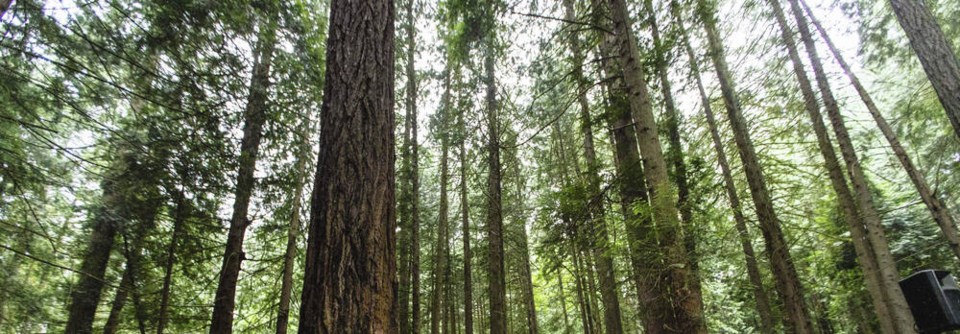Nearly every one of the last 20 forest ministers, going back 35 years, has stood up at one point or another and indignantly denied that forestry is a sunset industry.
The fact they felt the need in the first place means the impression was out there. More and more, it looks like that impression was and is correct.
The NDP spent years in opposition building that perception. The one industry statistic that is top of mind with every NDP MLA, and repeated incessantly, is that 30,000 jobs were lost in the woods during the B.C. Liberals’ 17 years in office.
But thousands more vanished during the NDP terms in the 1990s, and job losses were an issue in the 1980s as well.
Now, one year into a majority government, the NDP is executing a major remake of forestry policy. It’s a remarkable power play that involves jamming two lengthy, major bills, more than 200 pages in total, through a fall sitting of the legislature. That sitting is normally devoted to routine business, not major legislation rewrites.
It started before the storm of the century and it’s continuing through the huge recovery effort, when some stakeholders are preoccupied. The remake is accompanied by an advertising campaign that was launched by the New Democratic Party.
Sandwiched between the two bills was the announcement that 2.6 million hectares of old-growth are being “temporarily” deferred from harvest plans. That will have as much impact as the legislation does, and it’s just as rushed.
The push to get the overall package through the legislature is so concentrated that two different committees are now debating the two major forestry acts at the same time. On Tuesday the government imposed debate limits which will force passage by Thursday. Welcome to NDP majority goverment.
The rewrite touches all facets of forestry policy. Some of the changes are undeniably positive. But in terms of jobs – one of the industry’s major metrics – there’s nothing that suggests the sun will rise again on the forestry employment scene.
After the changes take hold, the forestry industry will carry on with a far lighter touch. Many more valleys will be off-limits to logging. There will be more community involvement, far more First Nations’ authority over logging plans, a closer watch on log exports and more attention to ecosystem values.
What there won’t be is any wholesale increase in jobs. Even the government confirms the old-growth deferrals alone will cost 4,500 more jobs. That would amount to good news, because the industry estimates they will cost far more. The major companies – which aren’t nearly as major as they used to be – will lose timber rights and power in equal measure.
The B.C. forestry industry will be far more centred on boutique logging shows and smaller-scale milling than high-production operations.
The Forest Statutes Amendment Act complements old growth preservation and “increases public control” of the forest, says the government. It legislates the recognition of Indigenous rights into forestry policy and mandates more public scrutiny of logging plans.
The statement said it will increase jobs, but it’s hard to see where or how. There’s more emphasis in the package on short-term make-up work and bridging to retirement, than there are details about new jobs.
Two weeks later, the “temporary” deferrals of harvest plans on 2.6 million hectares of old growth deferrals were announced. The Council of Forest Industries calculated that would shut down 14 to 20 sawmills and two pulp mills, at a cost of 18,000 jobs.
Two weeks after that, the Forest Amendment Act dropped.
Forests Minister Katrine Conroy said the significant concentration of tenures makes it hard to promote innovation and attract new businesses.
So the bill, among other things, allows government to curb harvesting rights for existing tenure holders and changes the compensation measures in such takeaways to the government’s advantage.
Conroy and other government MLAs are concentrating on the positive aspects of the government taking back control and dealing First Nations into the industry to a much larger degree.
But they are a lot less forthright on the potential cumulative downside to all the changes – significant job losses in the near future and over time, in communities where those jobs count.
They don’t have a response. So they’re ramming it all through the legislature before too many people notice.



